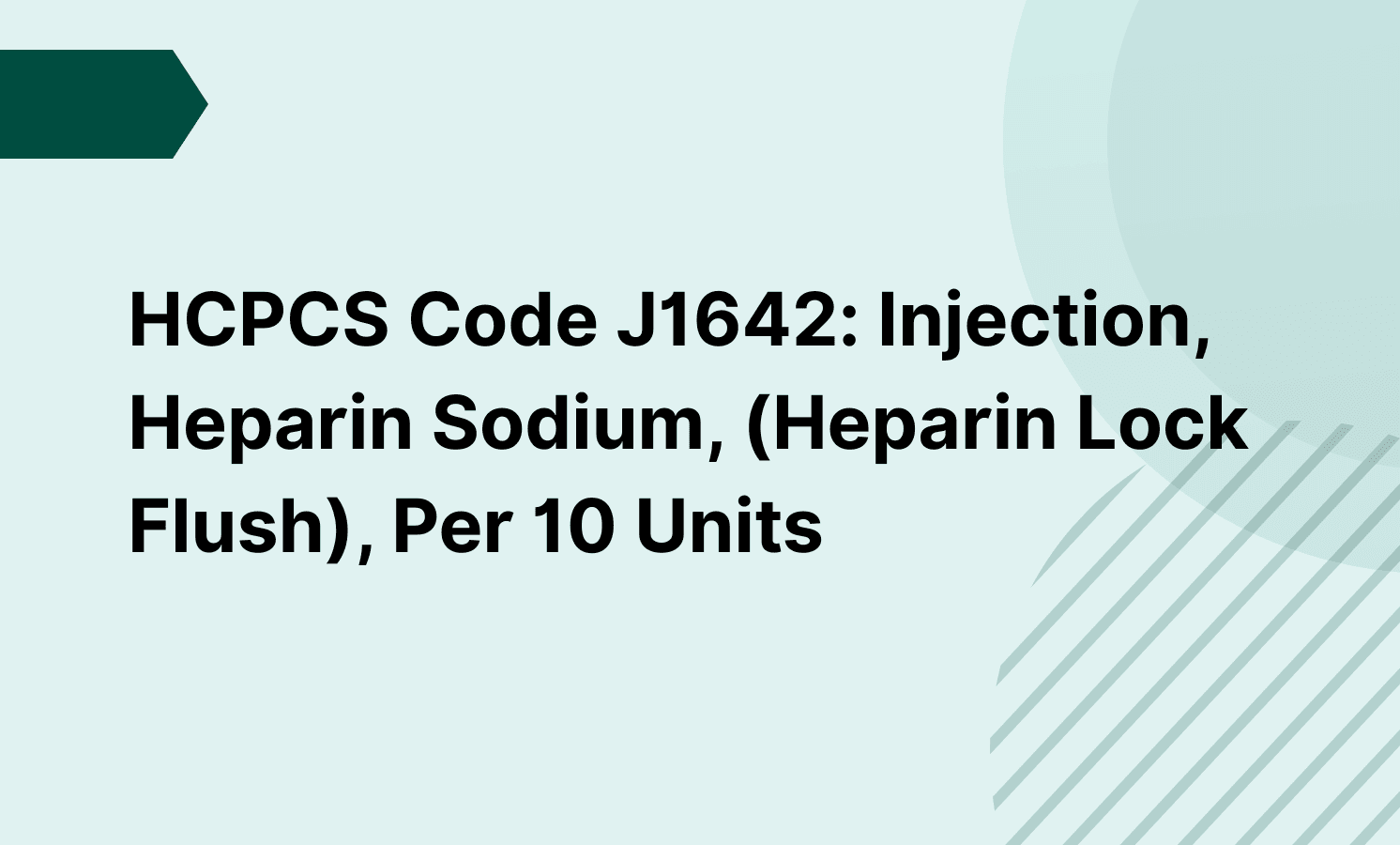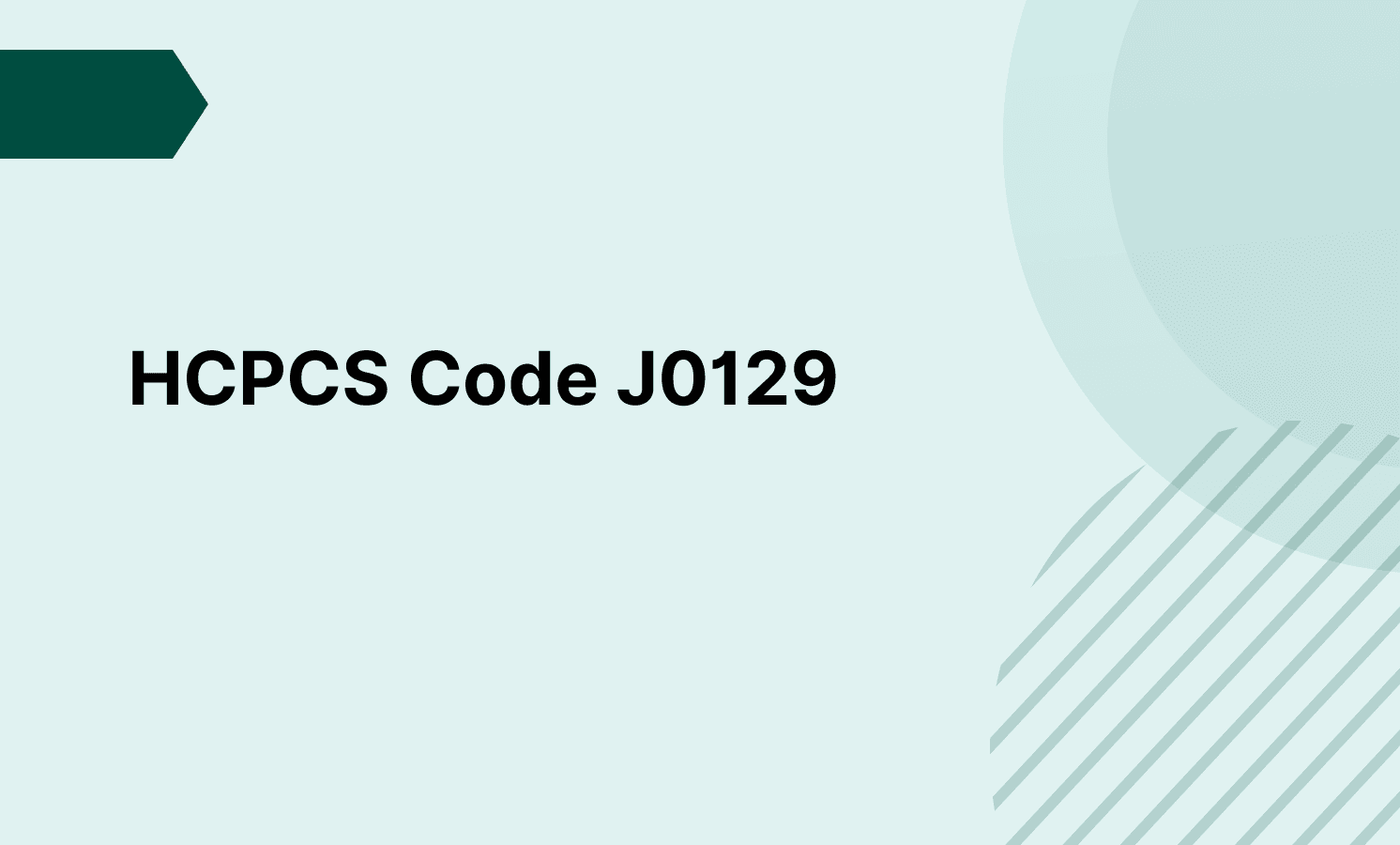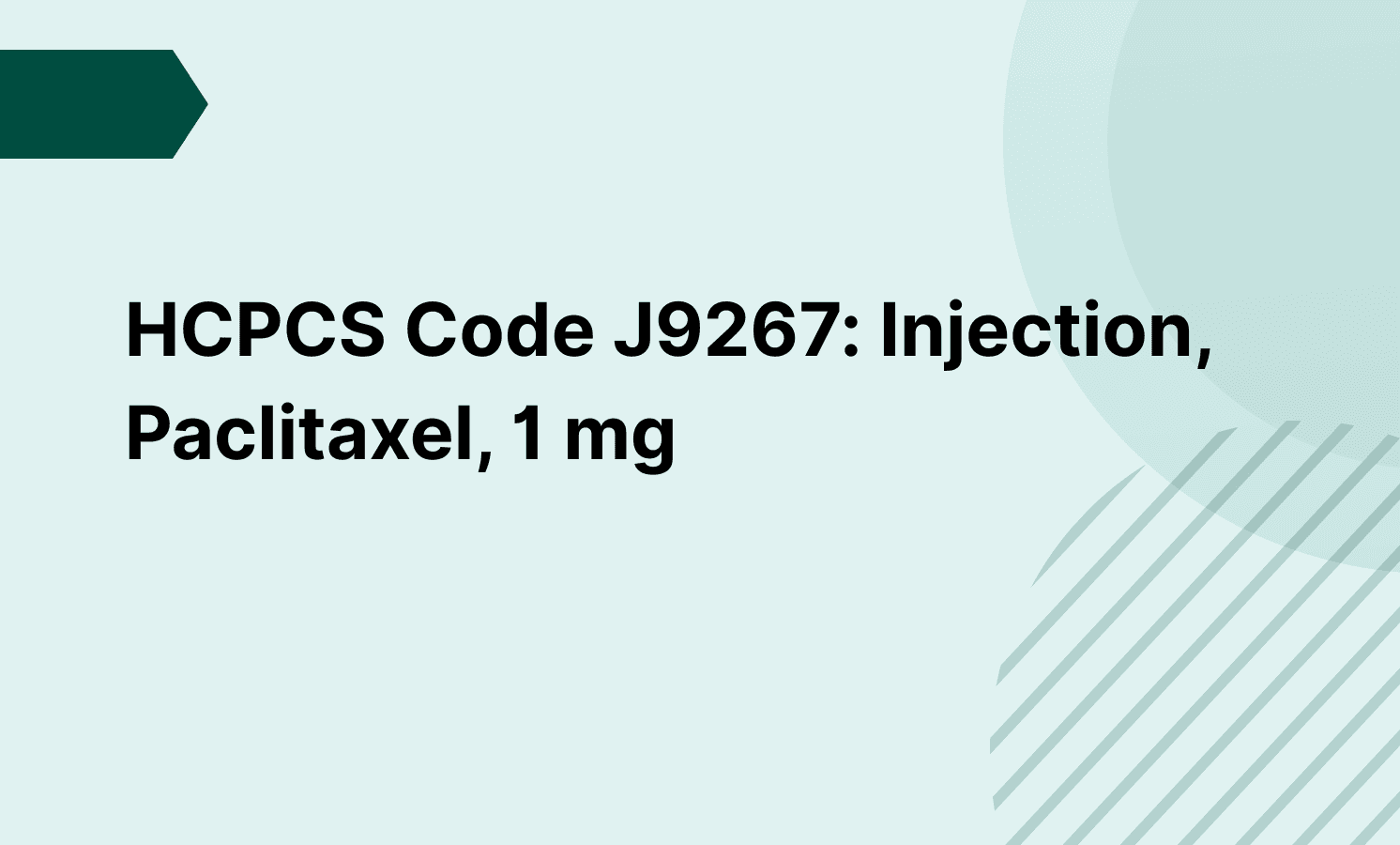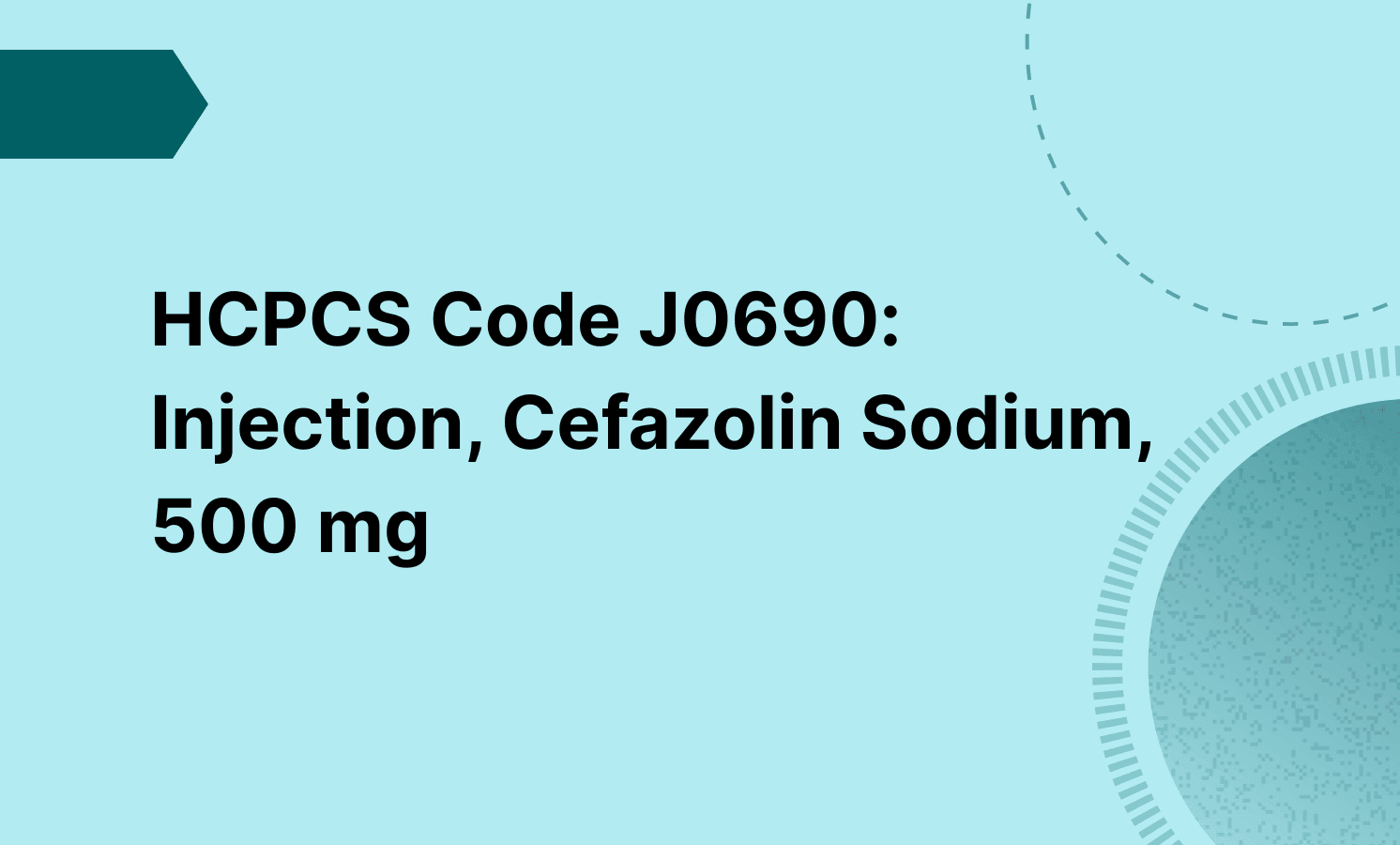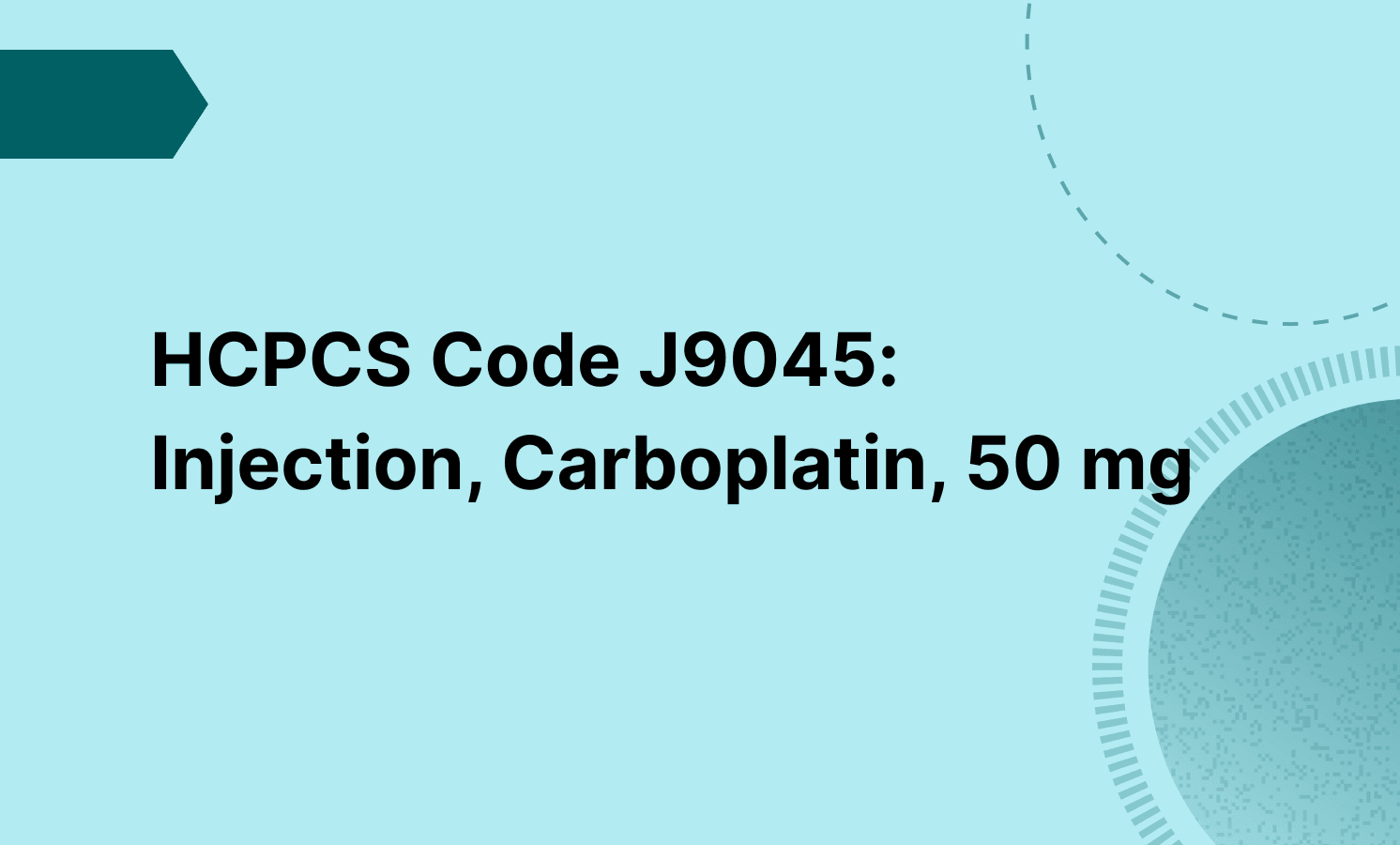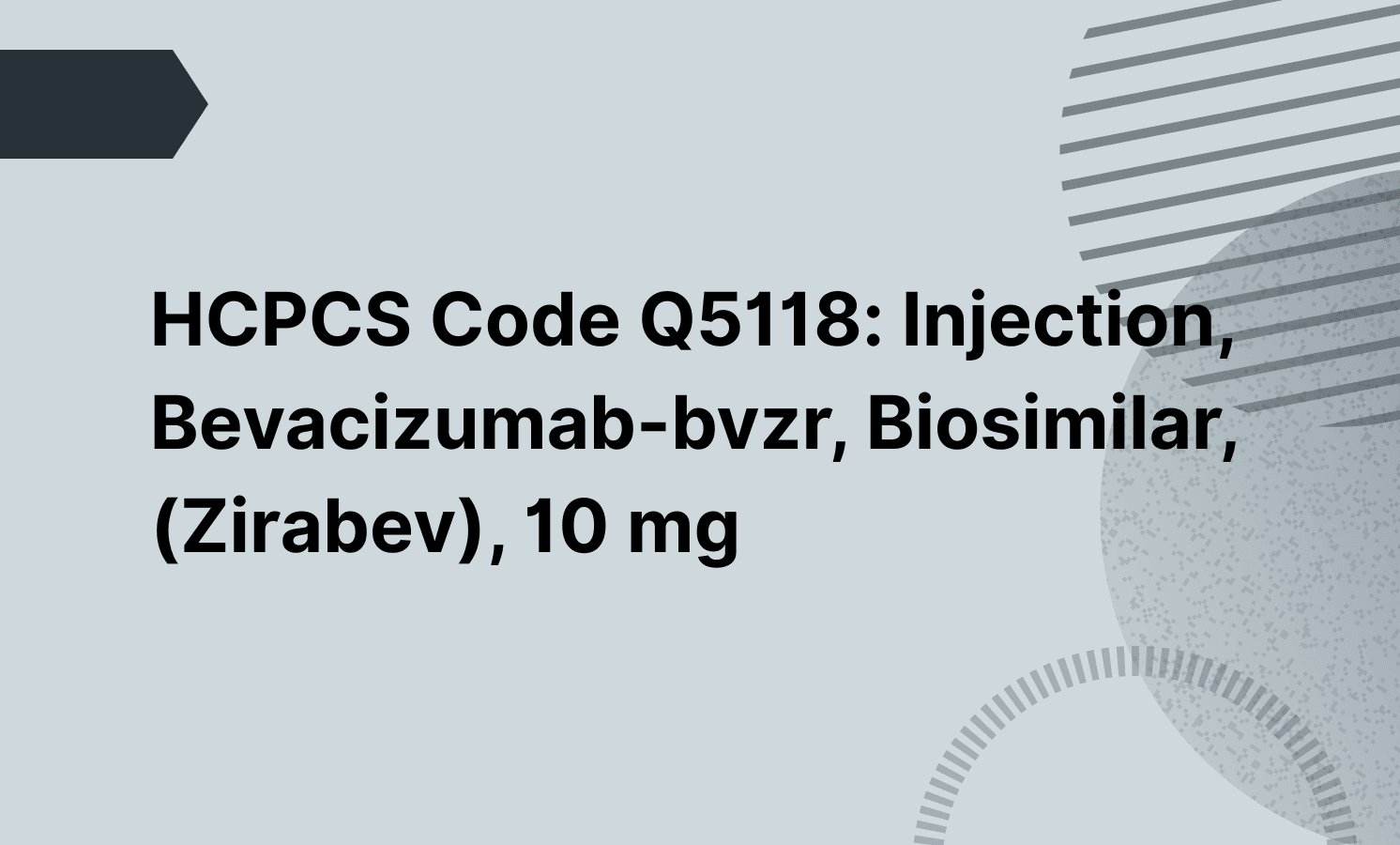CPT code 99495 requires moderate-complexity medical decision-making and includes a face-to-face visit within 14 days of discharge and 30 days of post-discharge care. Billing occurs after completing all TCM services, including timely communication within two business days of discharge (e.g., phone calls, telehealth) and documentation of care coordination, medication reconciliation, and management of medical/social needs.
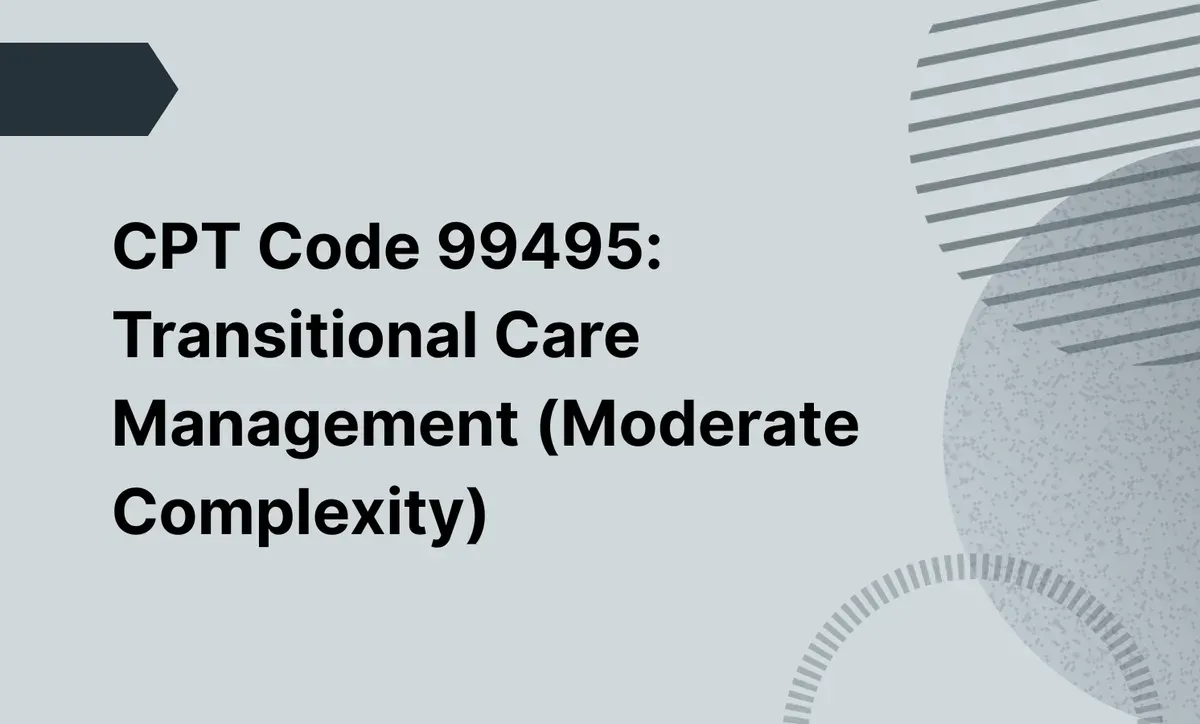
CPT Code 99495: Transitional Care Management (Moderate Complexity)
Learn more about the essentials of CPT code 99495 for transitional care management to optimize patient transitions.
Frequently asked questions
99495 applies to moderate-complexity care with a face-to-face visit within 14 days, while 99496 requires high-complexity care and a visit within 7 days. Both codes cover 30 days of post-discharge management, but 99496 demands more rigorous analysis of patient data, higher risk of complications, and/or more complex diagnoses.
A transition of care involves managing a patient’s move from a hospital, nursing facility, or other inpatient setting to home or outpatient care within 30 days post-discharge. It includes care coordination, medication reconciliation, and addressing medical/social needs to reduce readmissions.
EHR and practice management software
Get started for free
*No credit card required
Free
$0/usd
Unlimited clients
Telehealth
1GB of storage
Client portal text
Automated billing and online payments

